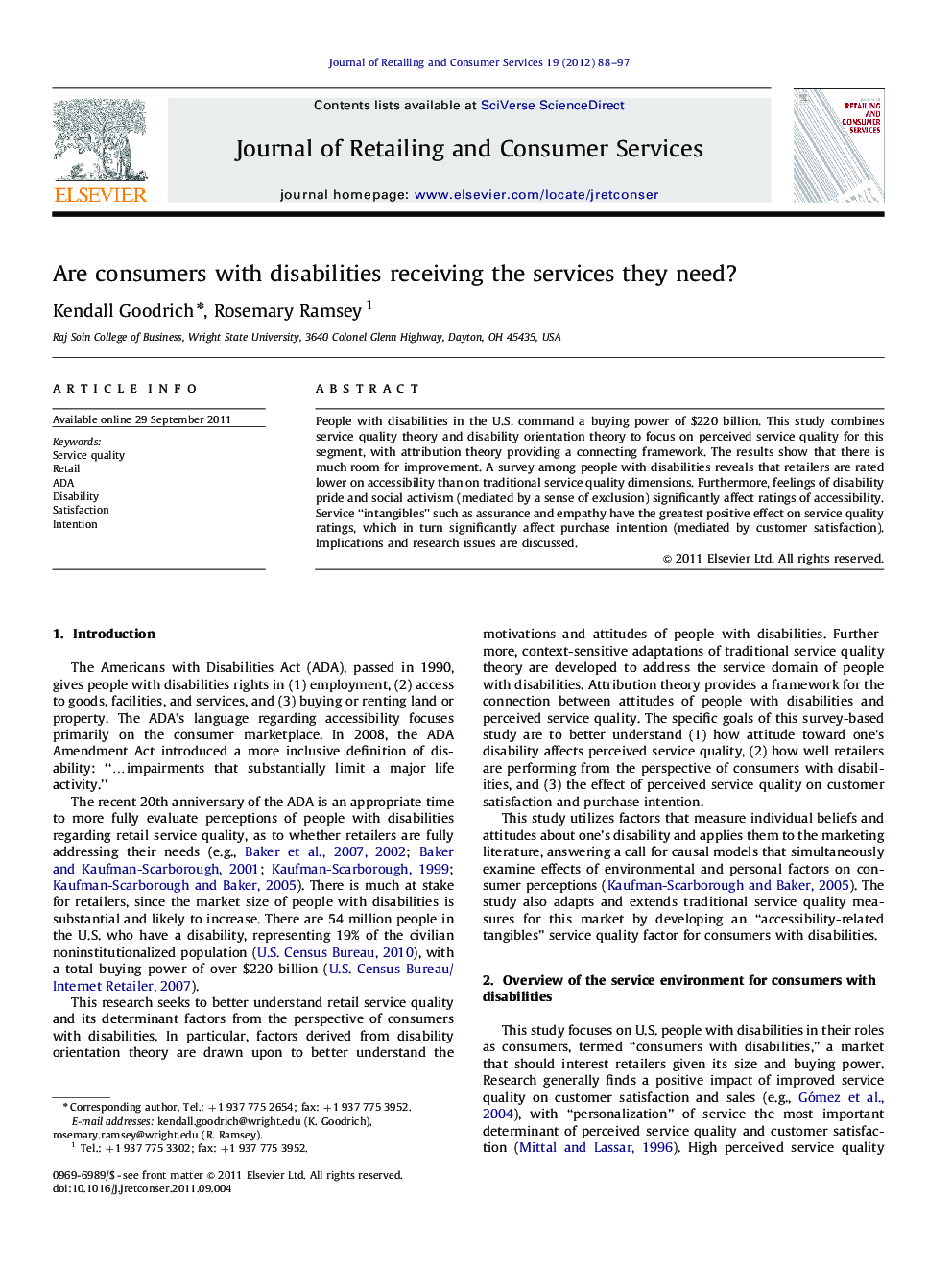| Article ID | Journal | Published Year | Pages | File Type |
|---|---|---|---|---|
| 1029176 | Journal of Retailing and Consumer Services | 2012 | 10 Pages |
People with disabilities in the U.S. command a buying power of $220 billion. This study combines service quality theory and disability orientation theory to focus on perceived service quality for this segment, with attribution theory providing a connecting framework. The results show that there is much room for improvement. A survey among people with disabilities reveals that retailers are rated lower on accessibility than on traditional service quality dimensions. Furthermore, feelings of disability pride and social activism (mediated by a sense of exclusion) significantly affect ratings of accessibility. Service “intangibles” such as assurance and empathy have the greatest positive effect on service quality ratings, which in turn significantly affect purchase intention (mediated by customer satisfaction). Implications and research issues are discussed.
